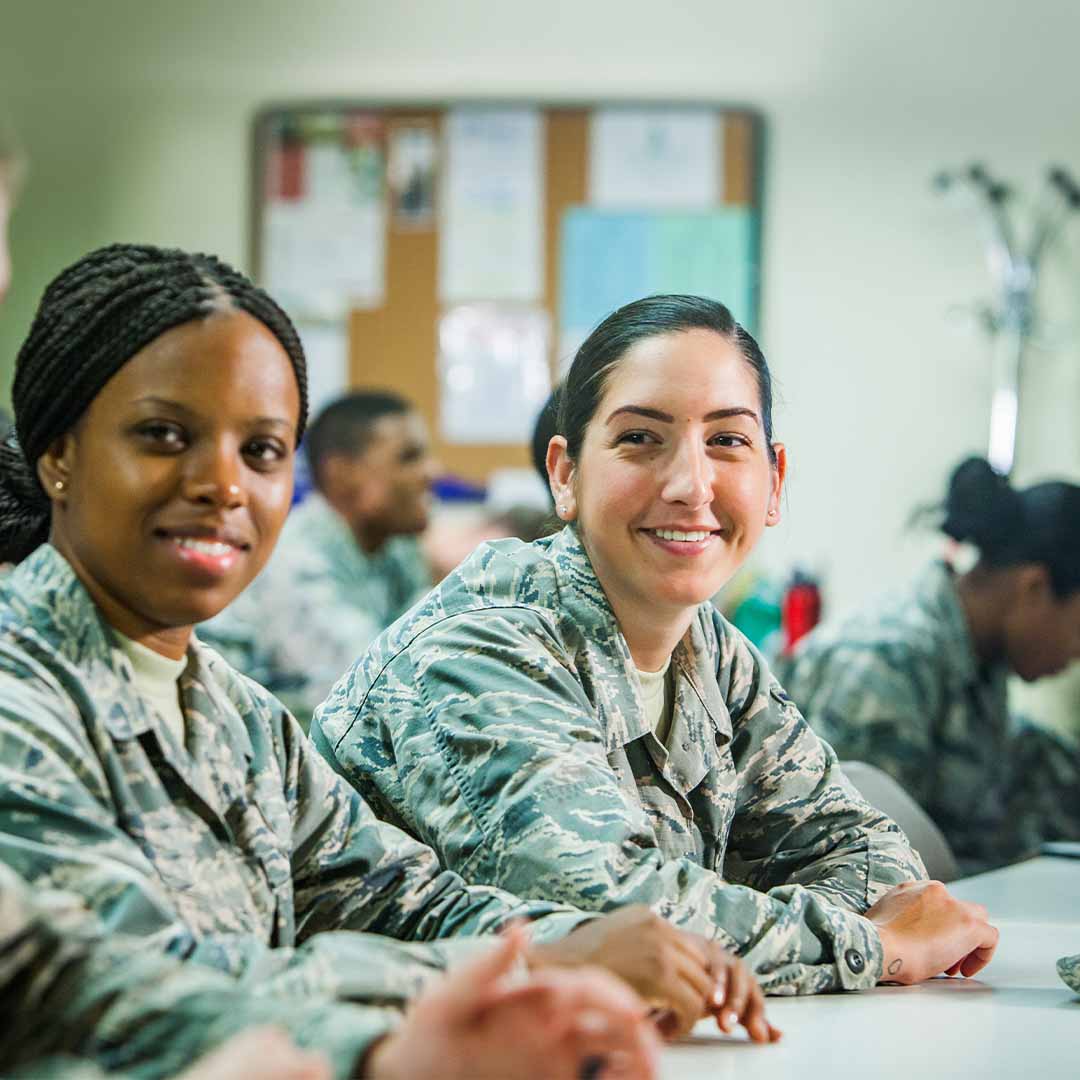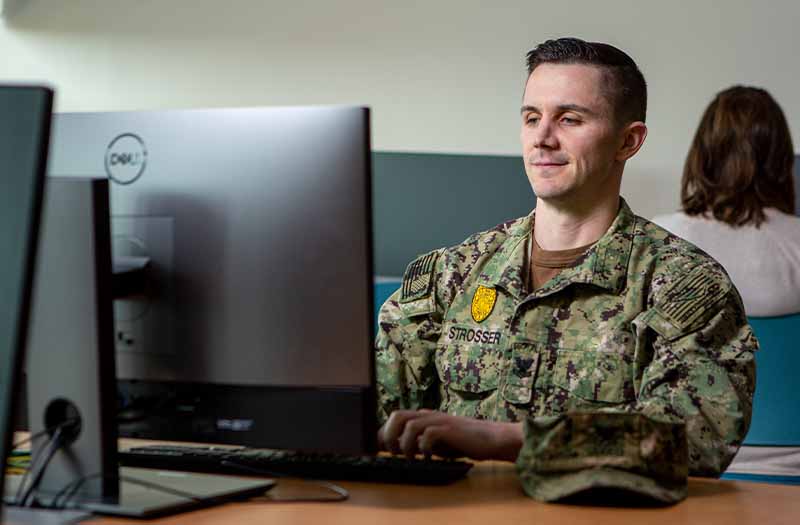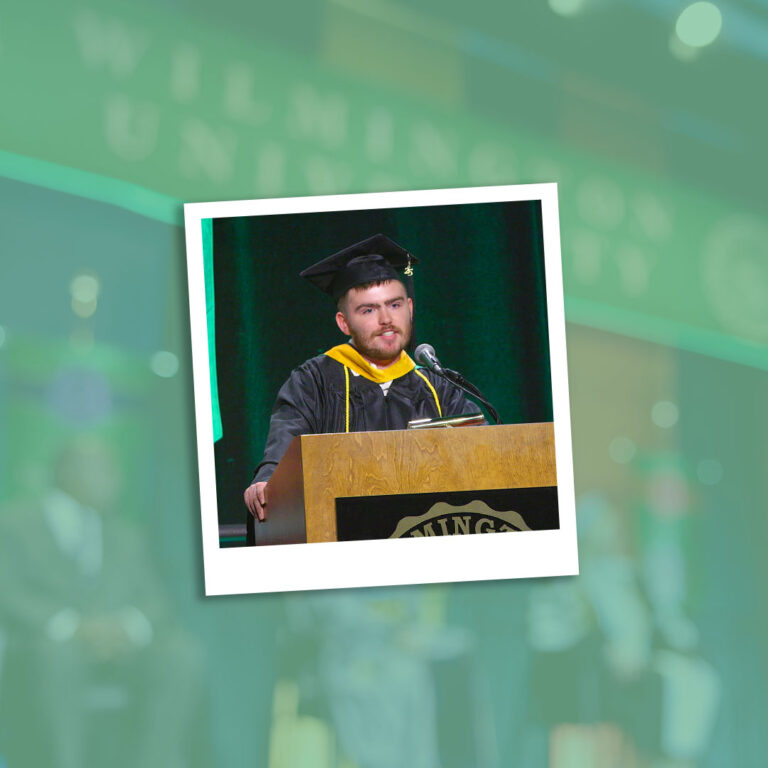Supporting Those Who Serve: How WilmU Works for Military-Connected Students

For many military service members and veterans, a college degree represents a key step in the transition to civilian life.
“Higher education serves as a critical component to long-term success while volunteering to serve, as well as after service,” says James Webb, director of military affairs for Wilmington University. “A wealth of opportunities exist, and when they’re combined with military and veterans’ education benefits, the pursuit of higher education ensures competitiveness in and out of uniform.”
WilmU works for military-connected students and has for decades. In December 2020, the University joined more than 2,000 colleges and universities nationwide to demonstrate a commitment to service members, veterans, and their families when President Dr. LaVerne Harmon signed a pledge to implement and uphold the Eight Keys to Veterans’ Success.
The Eight Keys program, developed in collaboration between the U.S. Departments of Education and Veterans Affairs, outlines the steps that educational institutions can take to support current and former service members on their way to academic and career goals.
“We want to ensure that our military-connected students have a smooth transition from service to campus life and beyond.”
— James Webb, Wilmington University Director of Military Affairs
“The program helps to ensure that schools provide a welcoming and consistent learning environment, and WilmU is committed to them,” says Webb. “We want to ensure that our military-connected students have a smooth transition from service to campus life and beyond.”
The Eight Keys to Veterans’ Success recommend that colleges and universities:
- Create a culture of trust and connectedness across the campus community to promote well-being and success for veterans.
- Ensure consistent and sustained support from campus leadership.
- Implement an early alert system to ensure all veterans receive academic, career, and financial advice before challenges become overwhelming.
- Coordinate and centralize campus efforts for all veterans, together with the creation of a designated space for them (even if limited in size).
- Collaborate with local communities and organizations, including government agencies, to align and coordinate various services for veterans.
- Utilize a uniform set of data tools to collect and track information on veterans, including demographics, retention, and degree completion.
- Provide comprehensive professional development for faculty and staff on issues and challenges unique to veterans.
- Develop systems that ensure sustainability of effective practices for veterans.
“WilmU meets or exceeds the criteria outlined in the Eight Keys,” says Webb. “Plus, we’re continually identifying and enhancing support services for military students and their families.”
Wilmington University currently serves more than 1,500 military-connected students. Two-thirds of them are pursuing undergraduate degrees, 30% are graduate students, and 3% are doctoral candidates. Seventeen percent are on active duty, 56% are veterans, and 27% are dependents.
One of those students is U.S. Navy veteran, Stephen Strosser. He earned his bachelor’s degree in criminal justice from WilmU prior to his service and then chose to re-enroll in a doctoral program while stationed abroad.

“As a military student, Wilmington University was very helpful to me,” says Strosser. “Every time I’m on the phone [with WilmU] or speaking to a person for the first time, the first thing they respond back to me with is ‘Thank you for your service,’ and that makes me feel welcomed and appreciated.”
Strosser cites WilmU’s flexibility as a key to his success. “The biggest thing that WilmU has helped with is flexibility,” he notes. “I was initially overseas when I first got into my program. Most of the work is done online, so it is also good for adult learners who are working.” Hear more of Stephen’s WilmU story here.
Wilmington University is proud to support those who serve. For more information about how WilmU works for military students and their families, please visit wilmu.edu/Military.



